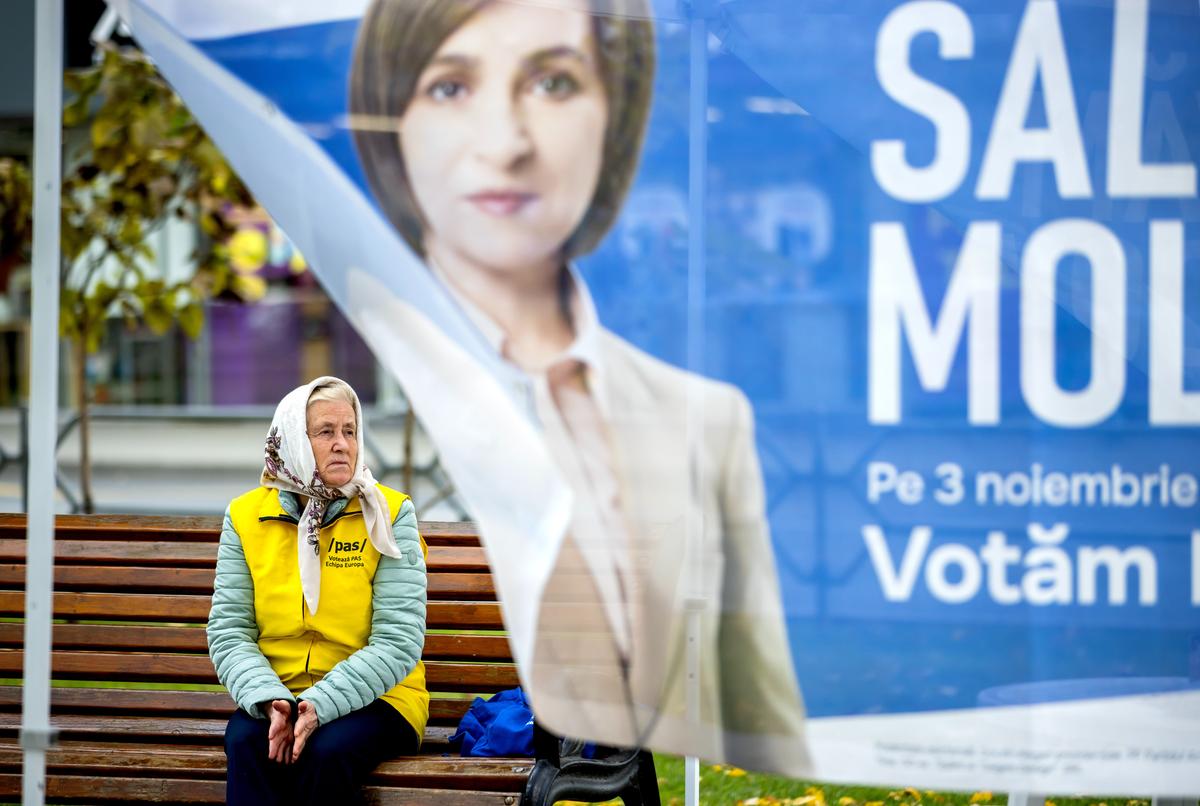
An elderly woman sits on a bench in front of an awning urging people to vote for incumbent pro-European Maia Sandu in Chisinau, Moldova, 31 October 2024. Photo: EPA-EFE / DUMITRU DORU
Moldovans began voting in the second round of the country’s presidential elections on Sunday morning, as the country decides whether to give incumbent pro-European Maia Sandu a second four-year term, or to elect Alexandr Stoianoglo of the pro-Kremlin Party of Socialists.
Despite Sandu winning by far the largest number of votes in the first round of voting on 20 October, taking 42.45% of ballots in total, she fell short of the simple majority required to avoid a second-round runoff. Stoianoglo, who is Moldova’s former prosecutor general and who has the backing of former pro-Russian president, Igor Dodon, received 25.98% of the vote.
Both Sandu and Stoianoglo did far better than opinion polls predicted they would in the first round of voting. While opinion polls taken last month suggested that Sandu was the clear favourite to win the race, her share of the vote was predicted to be just 36%, while Stoianoglo was forecast to win just 10% of the vote.
However, during the vote count, Sandu made allegations of widespread electoral fraud, adding that she and her team had evidence to back up the claims. “Moldova has faced an unprecedented assault on our country’s freedom and democracy, both today and in recent months,” Sandu wrote on X.
“Criminal groups, working with foreign forces hostile to our national interests, have attacked our country with tens of millions of euros, lies, and propaganda, using the most disgraceful means to keep our nation trapped in uncertainty and instability,” she continued.
Just days before the second round of voting began, independent media outlet EU Reporter published an investigation alleging that a senior member of Moldova’s socialist party and ally of pro-Moscow presidential candidate Alexandr Stoianoglo had links to Russia’s Federal Security Service (FSB).
